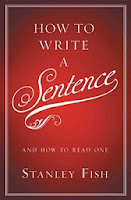 |
| Prof Stanley Hauerwas delivers the 2013 New College Lectures |
We have just completed the 2013 New College Lectures that were delivered by Professor Stanley Hauerwas from Duke University. His lectures had the title 'The Work of Theology: Thinking, Writing and Acting Politically'. In the three lectures Professor Hauerwas revisited positions he had taken in the past, and reframed them to help clarify and understand how he has engaged in theology as a practical discipline. Hauerwas suggested that the talks were in a way inspired by Karl Barth who wrote an essay entitled, “Rudolph Bultmann—An Attempt to Understand Him.” However, Prof Hauerwas suggested that they might best be characterised as a series of thought experiments entitled, “Stanley Hauerwas—An Attempt to Understand Him.” There were three lectures in all on consecutive nights (17-19th Sept) preceded by a shorter address to the residents of New College at a formal dinner prior to the lectures (16th September). You can download the lectures plus the formal dinner address HERE.
‘How I Think I Learned to Think Theologically’ – In the first lecture Professor Hauerwas explored the character of practical reason as an exemplification of the kind of reasoning that is intrinsic to the theological task. In this first lecture he drew heavily on the work of Alasdair MacIntyre and MacIntyre's argument that if we are to consider questions of justice and rationality, then we must recognise that such questions are not the same for all people. Hauerwas (acknowledging MacIntyre) argued that "...a person of practical reason is able to think for themselves only by thinking with others." He suggested that this will also depend on who you are and how you ultimately understand yourself. The ideas explored of course owe much to Aristotle and the way he distinguishes between scientific knowledge and practical wisdom. Having provided an account of practical reasoning Hauerwas then turned to a reflection on how he might have learned to think theologically drawing in particular on his memoir 'Hannah's Child'.
‘How To Write a Theological Sentence’ – In his second lecture Hauerwas drew heavily on Stanley Fish’s book ‘How to Write a Sentence: And How to Read One,’ and explored how difficult it is to write a sentence that expresses what we should say theologically about God. Before discussing Fish he again reminded us that how we understand and communicate theology reflects '...how Christians find themselves in the world' and that for theological writing to have impact it must make the familiar strange. Theology also needs to be writing about God rather than writing about what theologians in the past have said about theology. He explained that one of the key foundations of the theories of Fish is that syntax has an inexorable logic '...a ligature of relationships that makes a statement about the world that we can contemplate, admire, or reject'. He then used this to consider effective theological thinking and writing. In doing this, he drew many examples from the work of Robert Jenson. For example, his sentence 'God is whoever raised Jesus from the dead, having before raised Israel from Egypt' was unpacked and the power and work of 'whoever' discussed. Theology he suggested frequently confirms the familiar and that a sentence like Jenson's makes the familiar strange and engages us. This he argued should be the quest of any theologian.
‘How To (Not) Be a Political Theologian’ - In the final lecture Professor Hauerwas considered how politics has been at the heart of the first two lectures by drawing attention to current developments in political theology and in what ways he is, and is not, a political theologian. Of course, whether he is a 'political theologian' as some claim, will depend on how one defines 'political theology'. In the first section of his talk he considered how in Christian America there has been a sense of 'moral obligation to be political actors in what [is seen] to be democratic politics.' This talk drew heavily on John (Howard) Yoder's work, a critique of the work of Richard Niebuhr on 'Christ and Culture', and Walter Rauschenbusch's argument that the social gospel is the '...religious response to the historic advent of democracy.' With this as a backdrop he explored the relationship between Christianity and politics and suggested that, in a sense, the development of Christian thinking about politics and government resulted in '...the loss of the politics of the church.' Hauerwas suggested that Yoder's thinking is a strong counter argument to Niebuhr and Rauschenbusch and that the church can serve democracy by being a community that respects adversaries within and outside the church, rather than simply becoming a '...tributary to whatever secular consensus seems strong at the time'.
 |
| A section of the audience of almost 400 on the first night of the lectures |
The lectures and after dinner address
'A Theologian at Work', address to New College Formal Dinner, 16th Sept, 2013
‘How I Think I Learned to Think Theologically’, New College Lecture, 17th Sept, 2013
'How To Write a Theological Sentence' - New College Lecture, 18th Sept, 2013
‘How To (Not) Be a Political Theologian’ - New College Lecture, 18th Sept, 2013
 |
| Presenting the New College Lecture's medal to Prof Hauerwas |
Professor Stanley Hauerwas is an American theologian, ethicist and public intellectual. He currently teaches at Duke University serving as the Gilbert T. Rowe Professor of Theological Ethics at Duke Divinity School with a joint appointment at Duke University Law School. He is considered by many to be one of the world's most influential living theologians and was named 'America's Best Theologian' by ‘Time Magazine’ in 2001. His work is frequently read and debated by scholars in fields outside of religion, theology, or ethics, including political philosophy, sociology, history and literary theory.







No comments:
Post a Comment